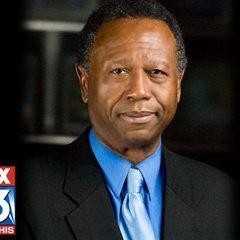Anyone who knows anything about my life and beliefs knows the term “racist” has no application at all to me. But, in the wake of negative reactions to a story I reported on Fox 13 News last week in which I was trying to put historical perspective on the West Memphis police shooting of 12-year-old DeAunta Farrow seven years ago, I was reminded of how much a common and destructive crutch the words racism, racist, or race-baiter have become. There are so many of us who use those words as a replacement for constructive thought — for everything from societal problems to governmental blunders. So, I’ve devised a set of multiple choice questions about current issues to see if you believe “racism” is the correct answer to any of them.

The Memphis City Council has voted to use $125 million in tax breaks to fund a proposed 450-room upscale hotel, theater, restaurant, and exhibit hall in cooperation with Elvis Presley Enterprises. It’s a deal all agree wouldn’t happen if the city wasn’t fronting the major bulk of the cost. It is one of the cushiest economic development agreements in the country, considering it will also allow the controlling Presley Enterprises company, Authentic Brands Group, to seek to incorporate a tax surcharge that will be the highest in the state in return for a promise to create 280 jobs. What do you think?
a) Somewhere Elvis’ former manager, Colonel Tom Parker, is laughing his ass off.
b) This is a great deal for the city to keep EP Enterprises from announcing one day they’re moving their entire operation to Tupelo.
c) This is a racist decision, made just to help struggling black businesses in the name of a man who exploited black music.
d) None of the above.
More often than not, we wake up on Mondays to the news of a handful of people being shot or murdered over the weekend on the mean streets of Memphis. What do you think could be done to stop it?
a) Do more city sponsored gun-collection drives.
b) Educate our youth about the danger of guns and ways to solve problems without resorting to violent actions.
c) Hire more police officers and put them in high-crime areas.
d) Provide more guns to more black people so they can use them to kill each other off, because that’s what they’re going to do anyway.
How can we begin to handle the current distrust, sparked by recent cases in Ferguson and elsewhere, between police and the people they have sworn to serve and protect?
a) Instead of constantly reporting on police officers gone bad, there should be more media stories on the proactive accomplishments of the 99 percent who are dedicated to what they do.
b) Assume all white MPD officers will shoot black people in a second and ask questions later.
c) Insist on more neighborhood policing and change residency requirements so those wearing the badge will be seen as a vital force in the communities in which they themselves live.
d) Equip MPD with dashboard cameras and body cams and have them rolling at all times, so the data collected can be used if questions about their actions arise.
If you think I’ve purposely set up this questionnaire to be slanted toward sensible answers instead of those with a racial slant, then you are right. Those people, black and white, who seek conspiracy theories behind the plethora of problems Memphis and the nation faces, are not helping. That strategy only distracts us and keeps us from working together to find answers to difficult questions.
We can blame the media for ratings-inspired exploitation of racial issues. We can blame our ignorance of history for not seeing the direction we should take in order to heal the old wounds of race, class, and sexual gender. To discover the cure for the disease of racism, we must be willing to open our hearts and minds to all people, including those who may not adhere to our value system, those who may not agree with us, and even those who don’t understand there are peaceful methods to avoid violent confrontations. When we cut off dialogue and retreat into the cocoon of our own prejudices, then we only have the crutch of labeling each other to fall back on.
 Greg Cravens
Greg Cravens